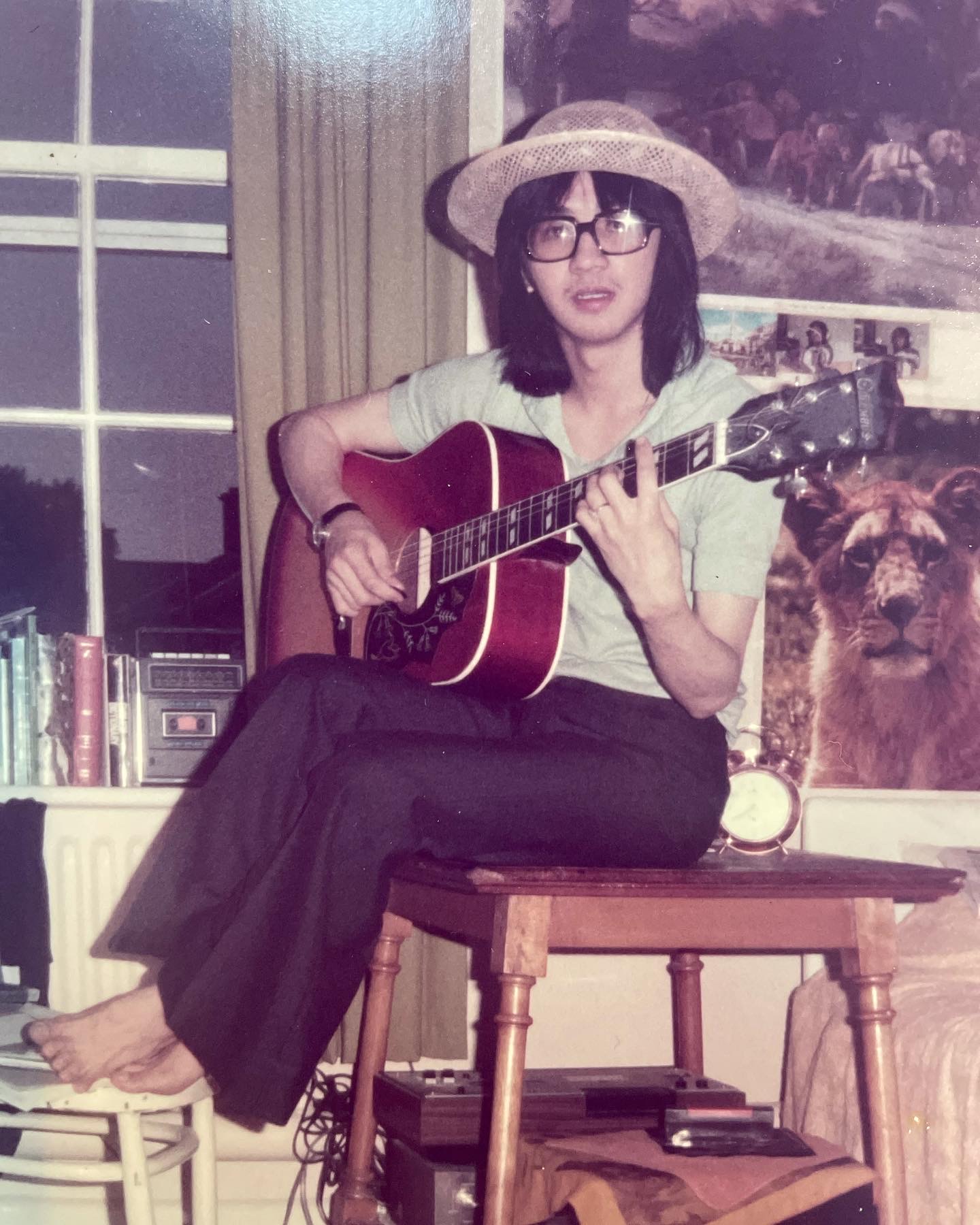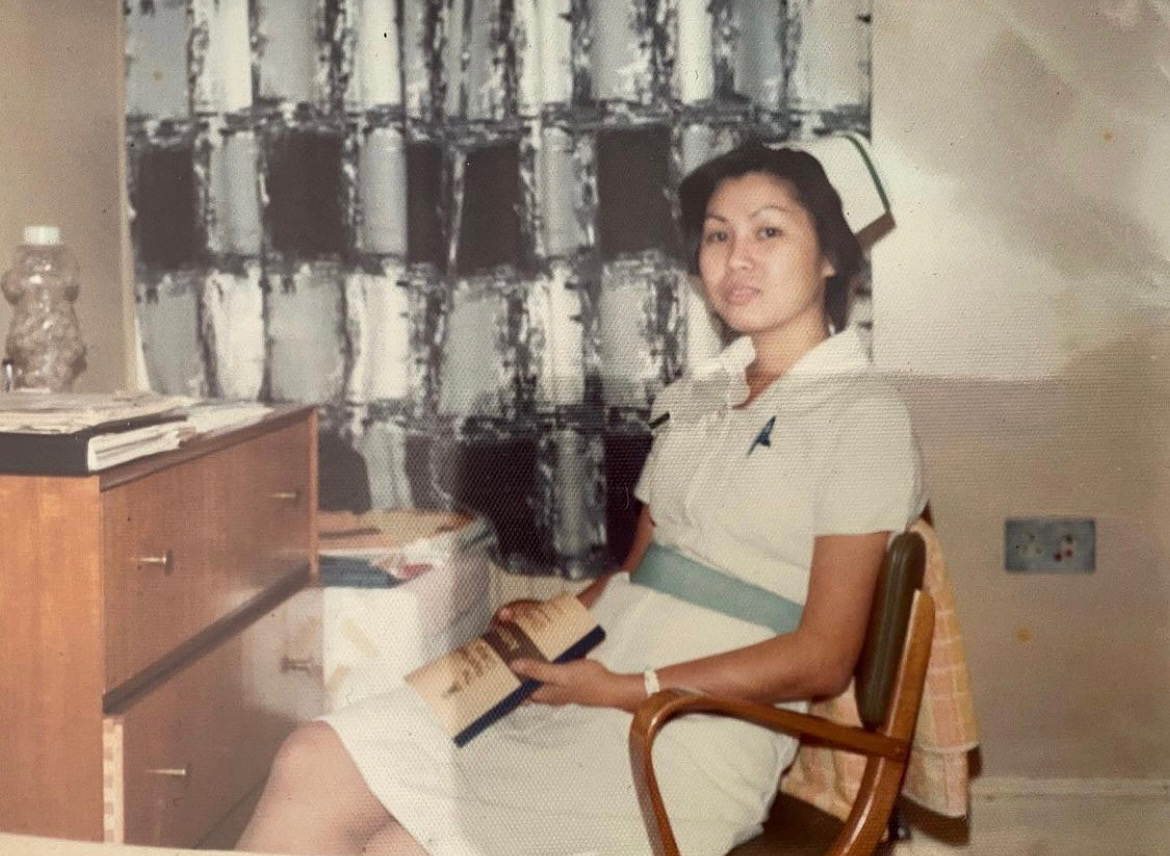I came from Pahang, Malaysia in 1975 at 22, to train in Psychiatric Nursing at Severalls Hospital, Essex. At the time, there were few job opportunities in Malaysia for Chinese immigrants like me due to the government’s discriminatory programme favouring native Malays. My cousin, Lan Ying (Jenny), who had trained as a nurse in the UK a couple of years previously suggested that I come over, with the incentive of salaried training and provided accommodation.
Hoh Min Leong (Leon Hoh)
I had to obtain a Certificate of Recommendation from the Ministry of Education in my country to certify that I was a Bona Fide student and medically fit. I was asked to be interviewed by the British Council in my country to confirm that all my documents, letter of acceptance from the School of Nursing were in order. In addition, the staff in the British Council ensured that I could speak the English language proficiently.
My cousin Lan Ying suggested I apply for psychiatric nursing as that’s what she was doing, and as she found it interesting, I decided to follow her advice. When it came to leaving home, I wasn’t afraid, but I was sad at leaving my mum and dad, with many emotional discussions over whether I should leave or stay. Ultimately, training as a nurse in the UK was deemed the best opportunity for me, particularly given the difficulties I would continue to face in carving out a career in Malaysia.
I did plan to come back to work as a nurse after I qualified, and my family hoped that I would too. But life had other plans!
When I arrived in the UK on an August bank holiday, I found it amazing and surreal to see so many white people, as well as very different buildings, black cabs and red double decker buses. I also noticed that the sun was setting later than in Malaysia where it consistently gets dark at 6pm all year round. I had to adapt to the very different food and shops closing at 5:30pm: a big change compared to the hustle and bustle back home and possibility of finding food being cooked somewhere at any time of the day or night. Furthermore, I quickly realised that I needed to brush up on my way of speaking English, as not many people could understand me.
Understanding of colloquialisms was tricky. An older patient said to me, ‘I want to spend a penny,’ to which I replied, ‘Oh sorry I haven’t got any money on me’. And he said, ‘No, you bloody fool, I want to go to the toilet!’ Or, ‘What’s your tipple?’ I had NO IDEA what that meant! I went to the pub in Colchester and the landlady said, ‘Oh you look like you’re a relative of Bruce Lee, if you are you can have a free drink’. This type of sarcastic humour took some getting used to.
While I needed to adjust to the culture outside of work, I was very happy living in the nurse’s home with a lot of different people, helping each other and having fun, which built great camaraderie. A home warden was in charge of a couple hundred of us trainee nurses from all corners of the world: Africa, Mauritius, the Philippines and Malaysia to name a few, and we all learned to cook each other’s food as well as letting off steam at the local social club.
Despite building new friendships, I still experienced homesickness, especially after going home to visit my family and needing to return to the UK. In fact, I don’t feel that I ever truly got over the feeling of missing home. However, I persisted and adapted to the English way of life: a process that was facilitated by my English wife and integrating with her family. The idea of returning to Malaysia once I became a father seemed unrealistic, given that my wife and children would be foreigners in my home country and job prospects remained poor. Instead, I settled in the UK and have been proudly working for the NHS for 45 years and counting as a community mental health nurse, and after retirement on the NHS Staff Bank. I have two daughters and three grandchildren, and my family and I make sure to continue to visit Malaysia every 2-3 years.


This story is part of Ingat-Ingat (http://www.ingat-ingat.com/), an exhibition curated by Becky Hoh-Hale about Southeast Asians who came to work for the NHS between 1959-1979.
This story includes and is in dedication to Aunty Jenny, Hoh Lan Ying, Leon’s cousin who sadly passed away in 2010. She was a big reason he came and she looked after him like a brother when he first arrived. She is sorely missed. Her images are collated with love by her two daughters, Tara and Sara.








